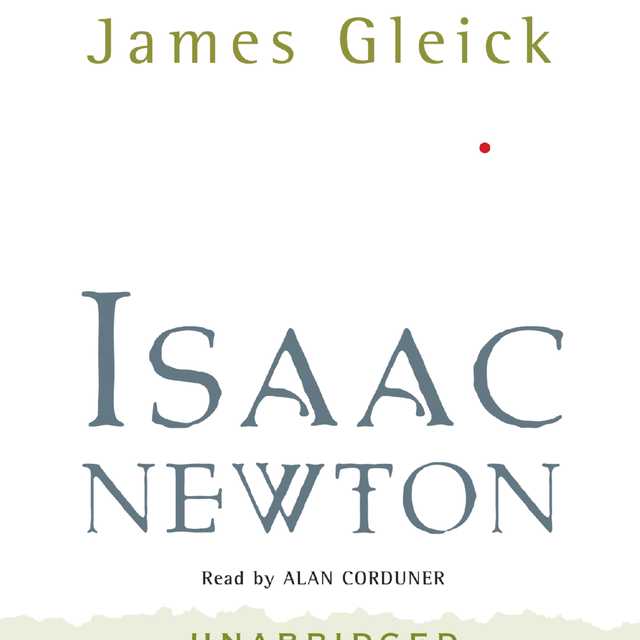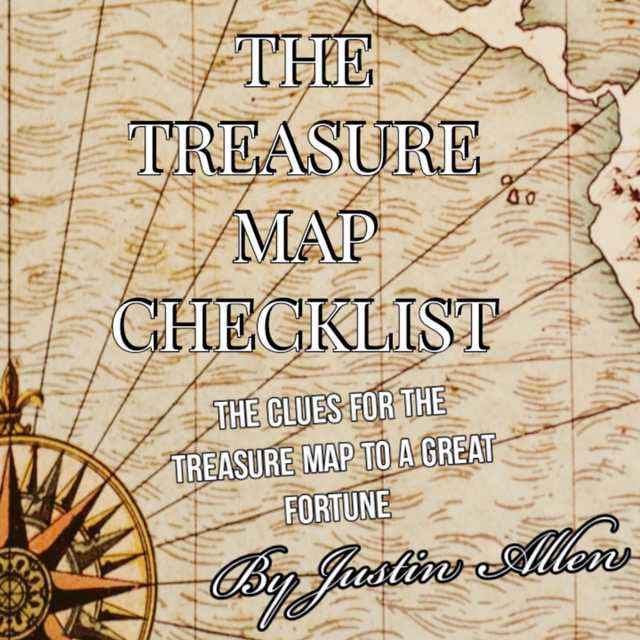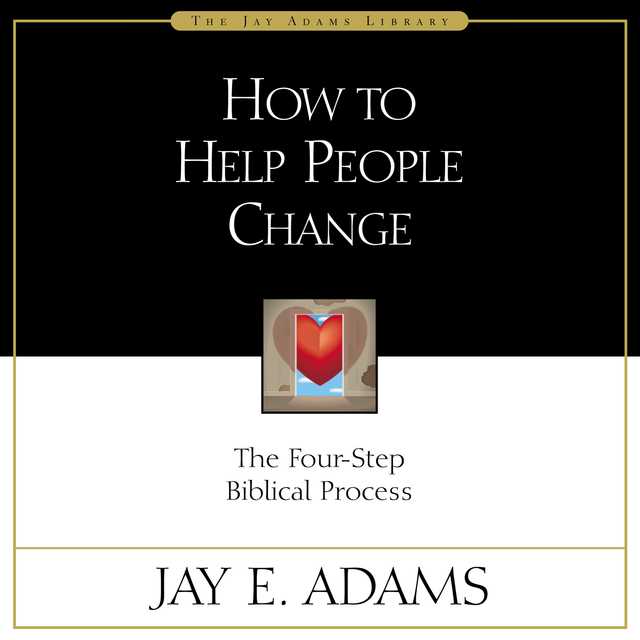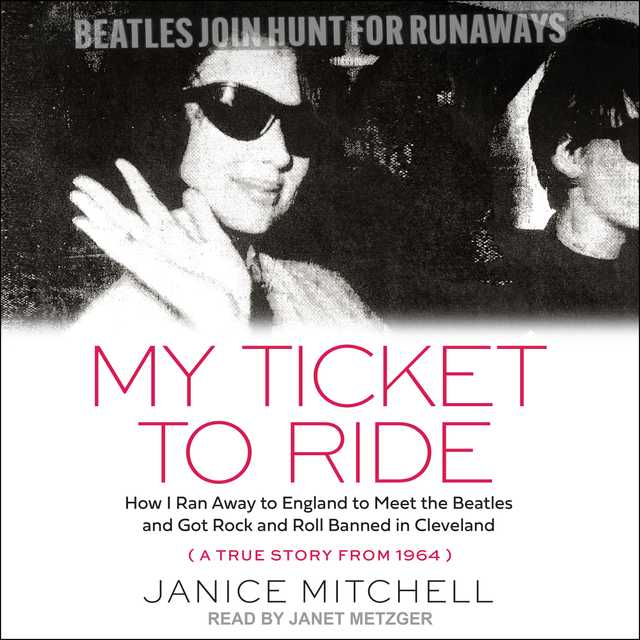Isaac Newton Audiobook Summary
James Gleick has long been fascinated by the making of science — how ideas order visible appearances, how equations can give meaning to molecular and stellar phenomena, how theories can transform what we see. In Chaos, he chronicled the emergence of a new way of looking at dynamic systems; in Genius, he portrayed the wondrous dimensions of Richard Feymnan’s mind. Now, in Isaac Newton, he gives us the story of the scientist who, above all others, embodied humanity’s quest to unveil the hidden forces that constitute the physical world.
In this original, sweeping, and intimate biography, Gleick moves between a comprehensive historical portrait and a dramatic focus on Newton’s significant letters and unpublished notebooks to illuminate the real importance of his work in physics, in optics, and in calculus. He makes us see the old intuitive, alchemical universe out of which Newton’s mathematics first arose and shows us how Newton’s ideas have altered all forms of understanding from history to philosophy. And he gives us a moving account of the conflicting impulses that pulled at this man’s heart: his quiet longings, his rage, his secrecy, the extraordinary subtleties of a personality that were mirrored in the invisible forces he first identified as the building blocks of science. More than biography, more than history, more than science, Isaac Newton tells us how, through the mind of one man, we have come to know our place in the cosmos.
Read by Allan Couruner.
Other Top Audiobooks
Isaac Newton Audiobook Narrator
Allan Corduner is the narrator of Isaac Newton audiobook that was written by James Gleick
James Gleick’s three books, Chaos, Genuis,and Faster,have been translated into nearly thirty languages. Gleick, a former reporter and editor of the New York Times,lives in New York.
>About the Author(s) of Isaac Newton
James Gleick is the author of Isaac Newton
More From the Same
- Author : James Gleick
- Time Travel
- Genius
- Faster
- The Information
- What Just Happened
- Publisher : HarperAudio
- Abraham
- American Gods [TV Tie-In]
- Dead Ringer
- House of Sand and Fog
- Prey
Isaac Newton Full Details
| Narrator | Allan Corduner |
| Length | 5 hours 45 minutes |
| Author | James Gleick |
| Category | |
| Publisher | HarperAudio |
| Release date | April 26, 2005 |
| ISBN | 9780060846329 |
Additional info
The publisher of the Isaac Newton is HarperAudio. The imprint is HarperAudio. It is supplied by HarperAudio. The ISBN-13 is 9780060846329.
Global Availability
This book is only available in the United States.
Goodreads Reviews
Amit
May 27, 2019
It was a pleasure reading this book. the book has given an eneormous amount of information about the great name Newton. I can say before reading this book the man I knew but the story I didn't.
Simon
October 13, 2017
'Though Newton is no physicist, his book is very interesting...'This quote from Newton's contemporary Nicolas Malebranche sums up much of Gleick's excellent biography. Newton is to us a towering figure, arguably the single greatest scientist who ever lived - in fact he was so influential that science as we know it owes an incalculable debt to his vision. He didn't so much invent the modern way of looking at the world as he tore down the existing worldview, categorically proved it to be lacking, and then single-handedly constructed a new view. To people like Malebranche, speaking of Newton's masterwork the Philosophiæ Naturalis Principia Mathematica, this change was simply too much - Newton wasn't a scientist because he so radically redefined what the term even meant.Gleick captures this cataclysm and rebirth in a way that is elegant, engaging, and entertaining. His prose is almost poetic in how much meaning is conveyed per word, and the book has the feel of a finely crafted work of art. It reads very easily while simultaneously communicating a huge amount of information - truly the holy grail of science communication.The book provides a chronological biography of Newton, focusing less on the man himself and instead on his work - his letters, mathematics, and publications - letting the words speak for his personality. As is often the case with great scientists, it turns out that Newton was a bit of a dick. In corresponding with several recurring characters he shows himself to be cold, ruthless, and brilliant. A deep psychological analysis of his character is avoided here because that is available in other, weightier tomes that frankly after this I have no interest in reading. But enough is shown to convince at least this reviewer that Newton was a truly unique, strange individual.This brings me to the best comparison I can make to this book - the excellent The Strangest Man by Graham Farmelo about Paul Dirac. Newton and Dirac were similar in many ways, and so are their biographies. Where Farmelo succeeds compared to Gleick however is that he introduces an overarching theme or narrative to the book, namely Dirac's relationship with his father. Such a narrative thread is rather lacking from Gleick's biography, which might be a consequence of trying to condense things down to a brief format. This does mean the book doesn't live up to it's full potential, but it's not far short.A great biography, meticulously researched, beautifully written.
howl of minerva
September 15, 2019
Crisp, concise, a great introduction that leaves you wanting to know more. Others seem to have found it dry, I found it gripping. Given that Newton had little or nothing by way of what we'd normally consider a 'personal life' I suspect a much longer biography would be tedious.
Nelson
February 12, 2022
Isaac Newton é talvez a mais importante figura da história contemporânea pelo modo como conseguiu extrair da natureza um conjunto de regras abstratas que permitiram a Revolução Científica, base do Iluminismo, que por sua vez impactariam fortemente a Revolução Industrial e todo o posterior progresso tecnológico. Gleick dedica-lhe este livro, no qual faz uma boa introdução, mas podia ter ido mais fundo e mais longe.......continuar a ler no VI: https://virtual-illusion.blogspot.com...
Ben
December 26, 2007
This is a very compelling look at the life of an extraordinarily brilliant and complex man who profoundly influenced the course of modern history. Living as we do in an era when science and religion tend to be seen as fundamentally contradictory, it is fascinating to read of the curious young theologian who truly believed God's greatest wish was for humanity to discover the mechanisms that drive the movements of the universe—to, as Newton described it, transcend the finite boundaries of our being and reach toward infinity itself.As in all writings on Newton, there is the requisite clarification of the mythology surrounding him—yes, he did spend much time in his uncle's apple orchard during his early twenties, when he began developing the new mathematics that would come be known as the calculus, and no, he did not "discover" gravity or incur any apple-induced head injuries. But mostly, Gleick's biography is a look at Newton's humanity, and the sometimes intriguing, sometimes revolting contradictions that defined his charismatic personality. One sees, for instance, Newton's all but pathological paranoia over others stealing his ideas, and then the disturbing irony that several of the most famous quotes attributed to him—indeed, those usually presented as evidence of his humility and nobility of spirit—were, in fact, almost entirely plagiarized from his predecessors.Being a biography, this book is not primarily aimed at exploring the specifics of Newton's scientific or mathematical discoveries. However, one could no more write a biography of Newton without some discussion of mathematics than one could explain Mozart without reference to music. It is therefore helpful to have a small amount of familiarity with calculus and physics. That being said, there were scientific matters in the book that I didn't understand, and I didn't find that to be a problem.Truly a fascinating story of an incredibly influential historical figure.
Richard
December 21, 2020
For its elucidation of Newton's science, I would rate this book three stars. The narrative doesn't go deep enough to give me any real information -- just a general impression. For me, this was the Chinese food of science writing -- tempting, tasty, but I was left hungry.But for its treatment of Newton's efforts in alchemy and his religious beliefs, I'd rate this book five stars. p. 106 "Through his alchemical study shines a vision of nature as life, not machine."
Vishy
March 26, 2019
When I was wondering which book to read next, James Gleick's biography of Isaac Newton leapt at me. At less than 200 pages, it wasn't too long, and so I read it in a couple of days. This book covers all the important events in Isaac Newton's life, starting from his birth in a farm, when his father was no more, how he ended up in school, how he went to Cambridge University, how his career progressed from there, how he discovered the law of gravitation and the three laws of motion, how he invented Calculus, his spats with famous scientists of his time including Robert Hooke and Gottfried Leibniz, how he became the Lucasian Professor of Mathematics and later became a member of the Royal Society, how he later got the King's patronage and headed the Mint, and what happened after that. James Gleick's style is natural and breezy and the book moves at an easy pace. It is very accessible to readers who find books on science challenging or who avoid such books. If I remember right, there is not a single equation in the book. I loved the depiction of the intellectual fights that Isaac Newton had with Robert Hooke and Gottfried Leibniz. My teenage self hated Robert Hooke and backed Newton in the first fight. But my teenage self also backed Leibniz against Newton in the second fight 😁 (Mostly because Leibniz' system of Calculus is what we use now, because it is far superior to Newton's system, which is cumbersome.) After reading this book now, I find my older and more mature self backing Newton in both the disputes. I don't know whether it is because Newton was the aggrieved party in both the disputes, or whether it is because the book is biased and leans towards Newton. I need to read more on this. The book also doesn't shy away from describing Newton's adventures in alchemy, and also some of the darker sides of Newton, like when he becomes the head of the Royal Society, and he runs it like an autocrat. An interesting thing in the book which I couldn't stop thinking about was Newton's relationship with his mother. When Newton was born his father was no more and his mother was a widow. When he was three years old, his mother married a rich man. This rich man wanted a wife, but didn't want an add-on kid. So according to the arrangements made, Newton was left with his grandmother who brought him up, while his mother went to live with her new husband. Years later, when Newton was ten years old, the rich man died, and Newton's mother returned back. She was wealthy now as she had inherited her husband's money. The first thing she did after coming back was send Newton to school which was in a nearby town. Newton ended up boarding with the apothecary in that town and worked part-time there, while in school. When Newton was sixteen, his mother summoned him back home, and asked him to get started on his work as a farmer. Newton hated farm-related work and did badly. Then his mother's brother stepped in and helped Newton get into Cambridge. Even there, Newton's mother refused to sponsor Newton's education properly - he joined as a student in the lowest category. The students in this category 'earned their keep by menial service to other students, running errands, waiting on them at meals, and eating their leftovers'. Later, it appears that Newton and his mother kept up a correspondence which was polite and familial, and when his mother suffered from a serious illness, Newton left his work and came back home, and stayed with her till the end. It is a very interesting story of a family. Newton's mother doesn't come through with flying colours at all, in that story, because she avoided taking care of him when he was a child, but tried to make him take up responsibility and become a farmer when he became a teenager. This probably led to Newton being introverted, solitary and reclusive all his life - he was never attracted to women, he never married, and he never had close friends, except maybe one or two people in his later life. But his mother also sent him to school and later sent him to Cambridge. If she hadn't done that, Newton would have stayed in the farm and would have been a careless, below-average farmer. One of the greatest scientists of all time would have been lost in the depths of an English farm. So was Newton's mother a good parent or a bad parent? What do you think? One of the amazing things that we discover through the book is that Isaac Newton was an ordinary person with respect to socio-economic circumstances. His father was an illiterate farmer. He was expected to become a farmer too. He didn't have access to books the way we do. Even when he joined Cambridge, he had one notebook. In those days, paper was valuable, because it was probably handmade, and it was a luxury, if you had one notebook. This was the world that the young Isaac Newton lived in. Living in this world, Newton discovered gravity and invented the beautiful, complex field of Calculus. Calculus was so far ahead of its time that most people didn't understand it. It is a challenging subject even today, nearly 350 years later - I struggled with Calculus when I first encountered it. As James Gleick describes at the beginning of the book - "I don't know what I may seem to the world, " Newton said before he died, "but, as to myself, I seem to have been only like a boy playing on the sea-shore, and diverting myself in now and then finding a smoother pebble or a prettier shell than ordinary, whilst the great ocean of truth lay all undiscovered before me." An evocative simile, much quoted in the centuries that followed, but Newton never played in the seashore, boy or man. Born in a remote country village, the son of an illiterate farmer, he lived in an island nation and explained how the moon and the sun tug at the seas to create tides, but he probably never set eyes on the ocean. He understood the sea by abstraction and computation." It is amazing how someone who had so little could accomplish so much. It is so inspiring. It offers hope for the rest of us - that we don't need so much. We need just one or two fresh notebooks, some pens and pencils, some textbooks, some solitude and quiet, lots of intellectual curiosity and passion, and an inclination to work hard. If we have this, we can accomplish one or two things. I get goosebumps just thinking about this.I loved James Gleick's biography of Isaac Newton. It is written in spare and breezy prose, the technical content is not too challenging, and the book is very accessible for a general reader.Have you read this book? What do you think about it?
Euisry
January 23, 2013
Woww... Ternyata... Isaac Newton itu begitu yaa... Seringkali lintasan-lintasan komen kecil macam itu terbetik ketika membaca buku ini. Tidak menyesal jadi membeli buku ini (pada awalnya sempat ragu karena tak yakin ini buku bakal mengulas sosok Newton di sebelah mananya, dan tak punya referensi apa pun, hanya melihat buku ini di suatu stand pameran buku). Di lihat dari judulnya, "Misteri Apel Newton", terjemahan dari buku berjudul asli "Isaac Newton" karya James Gleick ini memang membuat buku ini agak kurang transparan mengenai apa kira-kira isinya. Plus sub judul dibawahnya yang berbunyi : Kisah Pergulatan Seorang Isaac Newton memberikan kesan ambigu juga, apakah yang dimaksud "kisah" disini adalah kisah hidup alias biografi ataukah kisah novel (biografi yang difiksikan). Dan ternyata...Ini adalah sebuah buku biografi tentang Isaac Newton, ilmuwan besar sepanjang masa yang mendapat peringkat-2 dalam buku 100 Tokoh Paling Berpengaruh dalam Sejarah-nya Michael Hart setelah Nabi Muhammad (mengalahkan peringkat Yesus). Jenius yang lahir pada masa yang masih serba gelap. Si penyendiri yang masih penuh teka-teki. Di buku ini, James Gleick menyajikan Newton dengan cara yang menarik. Tersusun atas hasil telaah terhadap dokumen-dokumen, surat-surat pribadi, buku-buku catatan Newton, & seabreg referensi lainnya, membaca buku ini ibarat memasuki gerbang masa lalu, tahun-tahun kelam yang masih menyelimuti Eropa pada abad 17-18an, dan menyelami alur pemikiran Newton, waktu ke waktu, berikut emosi-emosi yang kadang menyertainya.Buku ini mengungkap lebih banyak daripada "sekadar" Newton sebagai matematikawan & fisikawan brilian. Tentu saja, alur pemikiran Newton dalam bidang ini diungkap perlahan, mulai dari pertanyaan-pertanyaan filosofis yang menghinggapi pikiran Newton muda (dan dicatat dalam buku catatannya), minat & antusiasme tinggi dalam mengamati fenomena-fenomena alam sehari-hari, pencarian jawaban & bukti-bukti, juga kesulitan-kesulitan (karena kurangnya data atau keterbatasan kosakata yang tepat untuk menamai suatu istilah saintifik yang belum ada, misalnya) hingga kemudian perdebatan-perdebatan yang sebagian diantaranya berkepanjangan dengan ilmuwan-ilmuwan lain yang berbeda pandangan. Semua ini, rangkaian pencarian jawaban atas pertanyaan-pertanyaan filosofis tentang alam ini digambarkan cukup mendetail melatari proses lahirnya mahakarya Newton, Prinsipia, juga Opticks. Membuat kita seperti menyaksikan perjuangan panjang Newton memecahkan teka-teki pergerakan benda-benda, juga misteri tentang cahaya & warna-warna. Yang mengesankan adalah, gaya tutur buku ini dalam meng-guide "tur ke alam pemikiran Newton" ini cukup indah, dan filosofis (entah mungkin karena esensi filsafat alam itu sendiri memang filosofis), misalnya ketika menggambarkan pencarian solusi untuk gerak benda-benda, ketika fondasi metode kalkulus (yang belum lagi bernama) mulai tercetus. Ini membuat kita menyadari (kembali) bahwa esensi dari apa yang kini telah terumuskan dalam sebuah persamaan matematis ternyata tidaklah semembosankan kelihatannya. Lalu, bagaimana dengan apel? Judulnya memang menggelitik, karena selama ini apel seperti menjadi ikon untuk inspirasi Newton dalam menemukan gaya gravitasi. Setidaknya begitulah mitos berkata, bahwa Newton menyadari gaya gravitasi ketika melihat apel terjatuh (?). Yah, tidaklah sesederhana itu juga. Kenyataannya, penemuan konsep gravitasi universal memerlukan jalan yang demikian panjang. Tapi kalau melihat isi buku ini yang ternyata bukan tentang misteri apel-nya Newton :D, secara harfiah, judul itu jadi punya daya tarik lain, karena kini ia bisa dipandang sebagai simbol. Simbol yang kuat, yang bisa saja ditafsirkan sebagai misteri pemikiran Newton. Karena sebagai buku biografi, yang paling banyak mengambil porsi adalah tentang rangkaian pemikirannya.Kalau bukan "sekadar" matematikawan & fisikawan, lalu ini buku tentang sosok Newton yang mananya lagi? Yups, ternyata Newton itu banyak sekali minatnya. Dia berminat juga pada ilmu Alkimia (bukan kimia, waktu itu kimia belum ada). Alkimia itu seni yang misterius (& tertutup), yang karena sifatnya itu bahkan tidak sesuai untuk dikategorikan sebagai sains. Bukannya condong pada sifat ilmiah, Alkimia malah lebih condong pada sifat mistik (atau magis?). Selain berupaya mengubah logam-logam menjadi emas, ada pula upaya membuat "philosopher's stone" (Jadi inget Harry Potter :D). Ketika manuskrip-manuskrip alkimia milik Newton ditemukan, fakta ini mencengangkan. Hal mencengangkan bagi sebagian besar orang lainnya yang menyangka Newton seorang rasionalis sejati adalah minatnya pada teologi. Newton sangat kritis pada agamanya sendiri, meragukan konsep trinitas, bahkan meneliti dengan serius keotentikan Al-kitab, mencerca para pendeta atau paus yang dianggapnya menambah-nambahkan & menyelewengkan isi Al-kitab. Tentu saja semua ini terungkap dari dokumen-dokumen pribadi yang dirahasiakan Newton, mengingat pemikiran bid'ah semacam itu bisa membuatnya terancam jika sampai ketahuan. Paradoksnya, seperti yang diungkap buku ini, semakin ia meneliti & kritis, semakin ia beriman sekaligus bid'ah. Mungkin penemuan manuskrip-manuskrip semacam itu yang menginspirasi Novel Da Vinci Code? Bahwa Newton anggota perkumpulan sekte rahasia?Sosok Newton ini memang dikatakan sebagai salah satu tokoh paling misterius dalam sejarah. Tak heran, menyimak bagaimana kepribadian Newton yang penyendiri, tidak suka publikasi, dan lebih senang menghabiskan sebagian besar waktunya untuk bekerja sendiri, dan berjuang sendiri memuaskan dahaga akan ilmu pengetahuannya yang demikian besar. Karena tidak suka publikasi ini, banyak sekali tulisan-tulisan buah pemikirannya jauh sebelum Prinsipia lahir yang hanya bertumpuk untuk koleksi pribadinya. Ini juga yang nantinya jadi pemicu polemik panjang dengan Leibniz soal siapa penemu kalkulus yang sebenarnya. Perang debat antar-ilmuwan ini dipaparkan di buku ini dengan cukup seru :D. Apalagi mengenai bentrokan pendapat & saling serang lewat tulisan dengan musuh bebuyutannya, Robert Hooke, yang tampaknya di mata Newton begitu menyebalkan dan selalu membuatnya marah. Kadang-kadang membaca emosi & sikap arogansi pada bagian ini cukup lucu juga, mengingat pertengkaran panjang itu kadang terasa kekanakan, untuk ukuran seorang ilmuwan besar jenius. Tetapi begitulah salah satu sisi manusiawi sosok Newton. Pernah pula depresi berat hingga di ambang kegilaan. Terlepas dari berbagai keterbatasan manusiawinya yang niscaya, tak dapat dipungkiri, andilnya dalam perkembangan ilmu pengetahuan memang begitu besar. Dan teorinya, mekanika klasik, meskipun kini telah "terkalahkan" oleh teori fisika kuantum, telah membawa revolusi besar dalam sejarah kehidupan manusia, memang tak terbantahkan."Alam dan hukum alam tersembunyi di balik malam.Tuhan berkata, biarlah Newton ada! Dan semuanya akan terang benderang".(salah satu puisi yang menyanjung Newton) Selain memperkenalkan banyak sisi Newton, buku ini juga membuat kita menyimak reaksi orang-orang pada zamannya ketika ide-ide baru tentang filsafat alam yang "di luar bayangan siapa pun" dikemukakan. Prinsipia, misalnya, seperti halnya penulisnya sendiri, begitu terkenal. Tak hanya menuai sanjungan, tetapi juga penolakan dan cibiran. Prinsip-prinsip matematisnya memang akurat, tetapi ide bahwa gerakan benda-benda di angkasa dikendalikan oleh "gaya-gaya tak kelihatan" masih membuat sebagian orang shock, terlalu mengerikan & menganggapnya takhayul. Menyimak Newton & jamannya, membuat kita juga mengintip sedikit sejarah perkumpulan ilmiah Royal Society, karena Newton pernah turut meramaikannya & belakangan menjadi ketuanya. Jadinya buku ini tak hanya mengajak kita "tur pemikiran", tapi juga "tur sejarah". :)
Steve
May 20, 2021
i want to be able to write like james gleick one day
Colin
June 05, 2017
Newton is such a foundational figure for physicists that it’s difficult to imagine him as an actual human being. The paucity of biographical documents and his own reclusiveness and penchant for secrecy exacerbate this problem. Then there’s the centuries-long poetic redefinition of who he was and what he meant to human knowledge that further obscures things; the story of the apple (which isn’t true) illustrates how the real man is now all but obliterated by the myth.Gleick, as usual, does an excellent job of cutting through to what we actually know about the situation. It’s not a coincidence that this is a small book; the story of Isaac’s childhood is over in the first twenty pages since we know so little about it. He was incredibly curious and precocious, trying to ferret out knowledge for himself and given to measuring anything he could get his hands on. He was born to be a farmer, but through lucky interventions by adults he was sent to Cambridge to study, something that must have been a rare privilege for his place and time.It’s worth pausing here to mention comparisons with another foundational figure, George Washington. Both men were born into farming but became vastly more than that, revolutionizing their (professional) fields and later, the entire world. Fruit trees figure prominently and falsely in the myths of both men. Renouncing the world and rejecting public honors are strong themes in the lives of both — Newton’s refusal to publish his work for years, Washington’s resignation and refusal to become a king — although both later came to positions of great power, as president of the Royal Society and the United States, respectively. A strange but compelling connection.Newton’s middle years seem to mostly be a story of extreme social isolation — he was a reclusive and secretive figure even in his cloistered Trinity College — peppered with irregular correspondence with other scientists (a term that hadn’t been invented yet) and mathematicians that he seems to have largely regretted. He was completely intolerant of disagreements with his scientific conclusions and hated being challenged or drawn into disputes; his hatred for many other prominent scientists of his day (particularly Hooke and Leibnitz) seems pathological even compared to the pettiness of modern academia.But despite those frustrations, he also never fully withdrew and cut off ties with the wider research community. He seems to have actively teased other researchers by saying that he had solved important mathematical problems that were bedeviling them, but not revealing the solution. He must have known that this would only invite more scrutiny, not less, but he kept doing it. Something in him hungered for honors and recognition at the same time as something else wanted nothing to do with other people, whom he generally seems to have felt were inferior. Not a single person appears to have won his open intellectual respect, which is unjustified given how many other brilliant minds were at work during his lifetime, whom he knew.He clearly played dirty when it suited his purposes. He pried loose astronomical observational data from John Flamsteed, the Astronomer Royal, and later published it without approval very much against Flamsteed’s wishes. Given Newton’s refusal to publish his own work, this seems particularly unfair. He wrote anonymous review articles trashing Leibnitz and glorifying himself (although that was going on in reverse as well) and refused to accept that Leibnitz had done any original work on the calculus, contrary to what modern historians of science now believe. He also seemed extremely talented at making enemies; more or less everyone who dealt with him wound up in conflict with him. Although he defined our modern concept of rational scientific inquiry, his pattern of intellectual effort was profoundly emotional, anti-social and self-glorifying. He might possibly be the worst research collaborator in history.Gleick lays out the story of the writing and publication of the Principia in some satisfying detail. Halley was the key figure in making it actually happen. After the first book (of three) was published, a characteristic Newton-esque battle erupted when Hooke suggested he deserved some credit for the inverse-square law, which he had contemplated, without any evidence or mathematical rigor, a few years earlier. Newton flew off the handle, and deleted any mention of Hooke from the later books. (He nursed this fury for years, and mostly refused to have anything to do with the Royal Society so long as Hooke remained president.)Halley meanwhile had gotten himself in a bit of a strange position by getting the Royal Society to agree to sponsor the publication of the Principia, but without paying for it. The Society had only published one book before this, the History of Fishes (you can’t make this stuff up) which had been a commercial disaster. Halley would have to front the money for the Principia and get paid in unsold copies of History of Fishes. (For those who complain about excessively-specialized scientific research journals today, this is what the other extreme looks like!)Lurking behind the weird publication history is a point about language that deserves some closer attention. We take for granted today that words like gravity and momentum are straightforward, and we use them instinctively in many more contexts than pure physics (“I’m going to keep working on this draft because I’ve got some good momentum”). But those words didn’t have clear or fixed meanings in Newton’s day, and the physical concepts he was struggling to articulate remained out of reach of understanding so long as he couldn’t name them.There’s a powerful whiff of Whorfianism in this — until and unless you can build a vocabulary for physical concepts like gravity and momentum, you can’t fully conceive of them. In part what Newton contributed through Principia is the vocabulary for classical physics/mechanics, which was just as important as the mathematical structure underneath those concepts.Newton’s contribution to this specific scientific vocabulary also set a profound precedent, namely that a vital part of the process of scientific inquiry is to name or label physical phenomena that we don’t fully understand, and capture the thing in a word. That has been at the absolute heart of scientific progress ever since: a modern physics example is the word “quantum”, which was appropriated and used to define a physical phenomenon still poorly understood when the naming occurred, but which could not be productively investigated and analyzed without a clear and unique name.Other examples run the gamut from “evolution” to “virus” to “radiation” — all scientific discoveries that had to be encapsulated in language before human minds could truly grasp, analyze and understand them. We think of Newton as bringing us the mathematics behind foundational physics, but we should thank him equally for establishing the core tenet that language must be at the heart of scientific inquiry, regardless of the specific subfield of science.In his 50s, Newton gave up Cambridge and his monastic academic life for good (he “left no friends behind” as Gleick notes) to take up the post of the head of the national Mint. He oversaw a standardization and improvement of coins, aggressively pursuing counterfeiters, all the way to executions in some cases (it was a capital offense). This transition is strange and confusing to the modern understanding of Newton, dealing as it does with such practical and applied problems as standard coinage. He also made a huge amount of money (in the sense of acquisition, as well as manufacturing) for the first time in his life. This Newton is almost unrecognizable as the progenitor of the laws of motion, but he poured himself into the work and made a serious contribution to the national economy. This is the period when he received his knighthood, a world away from his cloistered ivory tower.Gleick concludes with Newton’s final days, when he was still concealing much of his writing on alchemy and other highly non-scientific topics. He died very wealthy (and old: eighty-four) but left no will. His papers were scattered into various private collections, with Keynes recovering some of them in the 1930s. As he put it, Newton was the “last of the magicians”, not truly of the Age of Reason despite his profound role in launching it. This is a sobering thought for a physicist, to see such scientific genius accompanied by irrationality and pre-modern thinking that we would laugh at today. We will have more scientific revolutions in the future, no doubt, but probably none will be sparked by a person of such deeply unscientific bent, regardless of what later ages tried to shape him to be.Cross-posted from Medium.
Josh
June 11, 2015
At the end of this short, competent, thought not overly analytical biography, James Gleick teases out the great irony of William Blake's portrayal of Newton as a cold, godless rationalist. Newton was anything but: a crank and a religious esotericist, he spent much of his life studying alchemy and biblical conspiracy theories, and the reason that he refused to take religious vows as part of his role as Lucasian Professor of Mathematics at Cambridge was not that he thought science and theology ought to be separated, but rather because he fervently believed in the fourth-century Arianist heresy (namely, that the Son possessed more corporeal qualities than were accepted by the Council of Nicaea). I read this because I really enjoyed Gleick's The Information: A History, a Theory, a Flood, and this one is similarly blessed with lucid and thorough explanations of the technical stuff. Newton's Principia was famously (and intentionally) difficult, but Gleick guides the reader with a sure hand through the underlying breakthroughs in optics, the Laws of Motion, and the invention of differential calculus. He also places the insights into their proper context of history, both intellectual (the sea change of the Age of Reason initiated by Descartes' investigations) and social (the petty, entertaining spats Newton had with interlocutors such as Robert Hooke and Leibniz). It took two centuries until Einstein overturned some of the Newtonian system's assumptions, but Newton's laws and his method of scientific inquiry remain the way we think about the world - rational, disinterested, quantitative. After John Maynard Keynes bought some of Newton's papers at an auction, he said: "Newton was not the first of the Age of Reason. He was the last of the magicians, the last of the Babylonians and Sumerians, the last great mind which looked out on the visible and intellectual world with the same eyes that began to build our intellectual inheritance rather less than `10,000 years ago." True as that may be, the change which he affected ushered in the world of modern science.
Jason
October 23, 2011
A first rate biography of Isaac Newton. The biography is a relatively short, standard cradle-to-grave account, with significant discussions of Newton's scientific thinking and discoveries, starting with mathematics, then optics, and finally physics -- not counting alchemy, biblical studies, and his role as master of the mint.James Gleick puts you directly into Newton's life and world through extensive quotations from letters and other documents, all with the original spellings. In some cases, like Newton's playing with infinite sums, Gleick reproduces a facsimile of the document itself.No scientific life I know is as full of bitter rivalries, secrecy, and a continuum from the ultra-rational to the completely irrational. Towards the end of the book Gleick quotes Keynes' apt description of Newton: "Newton was not the first of the age of reason. He was the last of the magicians, the last of the Babylonians and Sumerians, the last great mind which looked out on the visible and intellectual world with the same eyes as those who began to build our intellectual inheritance rather less than 10,000 years ago."
Bradley
February 03, 2010
Very fine introduction (or refresher) on the life of Isaac Newton. As a boy, my conception of Newton was of a man heroically revealing Truth to an awestruck world. This, of course, was a myth, made up in the years after Newton's death. The real Newton was far more interesting. Though perhaps we moderns obssess, without justice, over the darker aspects of his life, they are fascinating. The best parts of Gleick's treatment revolved around the gravity of Newton's alchemical pursuits: his feverish and secretive quest hunched over his furnace to discover what he thought were the real secrets of the Universe; the clandestine meetings, the pseudonyms, all were dark but pleasant surprises.Somehow, despite all his secrecy and feuding, Newton appears as a sympathetic figure in Gleick's book.
William
July 12, 2022
Isaac Newton was a man of contradiction. Newton became famous for developing Calculus, but he wrote more works on Alchemy and Theological Studies than Mathematics. By all accounts, Newton was a terrible man. He was temperamental and stubborn. Newton also worked for the Royal Mint. Although he said he saw further by standing on the shoulders of giants, Newton did not believe what he said.Off the top of my head, this is what I remember about Isaac Newton. Except for the last sentence of the paragraph, which I gleaned from what I just read. James Gleick wrote a biography about Newton, and that is what I will now read.Isaac Newton spent a lot of time calculating various things and playing around with proto-calculus. Newton found uses for ideas considered anathema at the time with his new methods. Tangents of lines require dividing by zero. Finding the area under a curve requires adding infinitesimals, small quantities that are almost zero but not quite. In that sense, Newton is a groundbreaker. He was willing to take it one extra step and leave the surly bonds of earth to touch the face of God.Humankind was barely out of medieval times, so they did not have terms for speed, velocity, acceleration, and gravity. Newton had to invent or repurpose many words to get his points across. Have you tried to time something with an hourglass? It isn't exact enough to make any calculations.Gleick adds a human dimension to a larger-than-life personality. He pores over Newton's notes and letters. He includes the spelling and grammar of the time, which slows me down in my reading even as it adds flavor to the text. I enjoyed the book. It opened my eyes to problems I had not considered.Thanks for reading my review, and see you next time.
Most Popular Audiobooks
Frequently asked questions
Listening to audiobooks not only easy, it is also very convenient. You can listen to audiobooks on almost every device. From your laptop to your smart phone or even a smart speaker like Apple HomePod or even Alexa. Here’s how you can get started listening to audiobooks.
- 1. Download your favorite audiobook app such as Speechify.
- 2. Sign up for an account.
- 3. Browse the library for the best audiobooks and select the first one for free
- 4. Download the audiobook file to your device
- 5. Open the Speechify audiobook app and select the audiobook you want to listen to.
- 6. Adjust the playback speed and other settings to your preference.
- 7. Press play and enjoy!
While you can listen to the bestsellers on almost any device, and preferences may vary, generally smart phones are offer the most convenience factor. You could be working out, grocery shopping, or even watching your dog in the dog park on a Saturday morning.
However, most audiobook apps work across multiple devices so you can pick up that riveting new Stephen King book you started at the dog park, back on your laptop when you get back home.
Speechify is one of the best apps for audiobooks. The pricing structure is the most competitive in the market and the app is easy to use. It features the best sellers and award winning authors. Listen to your favorite books or discover new ones and listen to real voice actors read to you. Getting started is easy, the first book is free.
Research showcasing the brain health benefits of reading on a regular basis is wide-ranging and undeniable. However, research comparing the benefits of reading vs listening is much more sparse. According to professor of psychology and author Dr. Kristen Willeumier, though, there is good reason to believe that the reading experience provided by audiobooks offers many of the same brain benefits as reading a physical book.
Audiobooks are recordings of books that are read aloud by a professional voice actor. The recordings are typically available for purchase and download in digital formats such as MP3, WMA, or AAC. They can also be streamed from online services like Speechify, Audible, AppleBooks, or Spotify.
You simply download the app onto your smart phone, create your account, and in Speechify, you can choose your first book, from our vast library of best-sellers and classics, to read for free.
Audiobooks, like real books can add up over time. Here’s where you can listen to audiobooks for free. Speechify let’s you read your first best seller for free. Apart from that, we have a vast selection of free audiobooks that you can enjoy. Get the same rich experience no matter if the book was free or not.
It depends. Yes, there are free audiobooks and paid audiobooks. Speechify offers a blend of both!
It varies. The easiest way depends on a few things. The app and service you use, which device, and platform. Speechify is the easiest way to listen to audiobooks. Downloading the app is quick. It is not a large app and does not eat up space on your iPhone or Android device.
Listening to audiobooks on your smart phone, with Speechify, is the easiest way to listen to audiobooks.






























